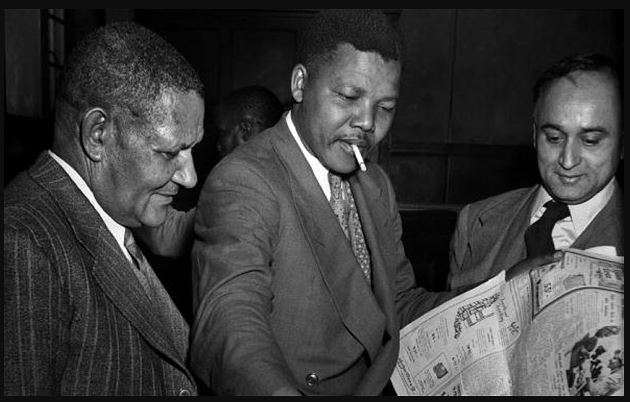Yusuf Dadoo was a Medical Doctor, anti-apartheid activist and a leader who devoted most of his life to the service of his people and humanity.
Born September 5th, 1909, Yusuf Dadoo was arguably among the top leaders of the national liberation movement in South Africa.
He was a close friend of Nelson Mandela, he chaired the South African Indian Congress and the South African Communist Party at a point in his life and was very instrumental to the cooperation between African National Congress (ANC), South African Indian Congress (SAIC), and the South African Communist Party (SACP).
The inscription on his tombstone reads, “Yusuf Dadoo, Fighter for National Liberation, Socialism and World Peace”.
Table of Contents
5 Lessons You can Learn from Yusuf Dadoo
1. He was a victim and a hero of the class struggle.
Even though he was scolded by his mother at the age of 10 for climbing a tree which was reserved for White people only. Dadoo grew up to become one of the leading voice against class struggle in South Africa. In 1946, together with Monty Naicker, they lead a Passive Resistance Campaign against the Asiatic Land Tenure and Indian Representation Bill otherwise called “The Ghetto Bill”. Two years later they signed the “Three Doctors’ Pact” calling for the right to vote, freedom of movement, education and equal opportunity for all non-European South Africans.
2. He was an advocate of girl child education and a critics of extravagant weddings
At a time where girl child education was still seen as a taboo in most African Countries, Dadoo was encouraging Parents to send their daughters to school in order to prepare them for the future. To him, education was one of the ways to end domestic violence, segregation against women in work place and a key facilitators of women integration into the society. He was also a vocal critics of extravagant weddings.
3. He promoted the unity and equality of all oppressed people.
Fighting for the cause of oppressed, freedom and liberation was his calling. He was not just standing on the sidelines, he was passionately leading peaceful protest against racism, police brutality and government rascality. His commitment made him one of the pillars of Liberation in South Africa, alongside Nelson Mandela, Oliver Tambo, Walter Sisulu, Moses Kotane, Lilian Ngoyi, JB Marks, and Chief Albert Luthuli, etc
4. He live a simple live and was always willing to help
For a man of his pedigree, he would have live like a King due to his education, exposure and position in the society but he chooses humility and service to Humanity. Nelson Mandela’s testimony on him, sums it up “I was impressed that a man like Dr Dadoo, a doctor from Edinburg, was living simply, wearing a khaki shirt, big boots and an army overcoat”. He was always willing to help the oppressed and he treated many of his poor patients for free.
5. He was a fan of good food
One of Dadoo’s legacy is healthy eating, as a lover of good foods particularly fish curry and trotters, Dadoo encourage his patients, friends and many people to eat good foods. According to him, good food was a good recipe for good health.

